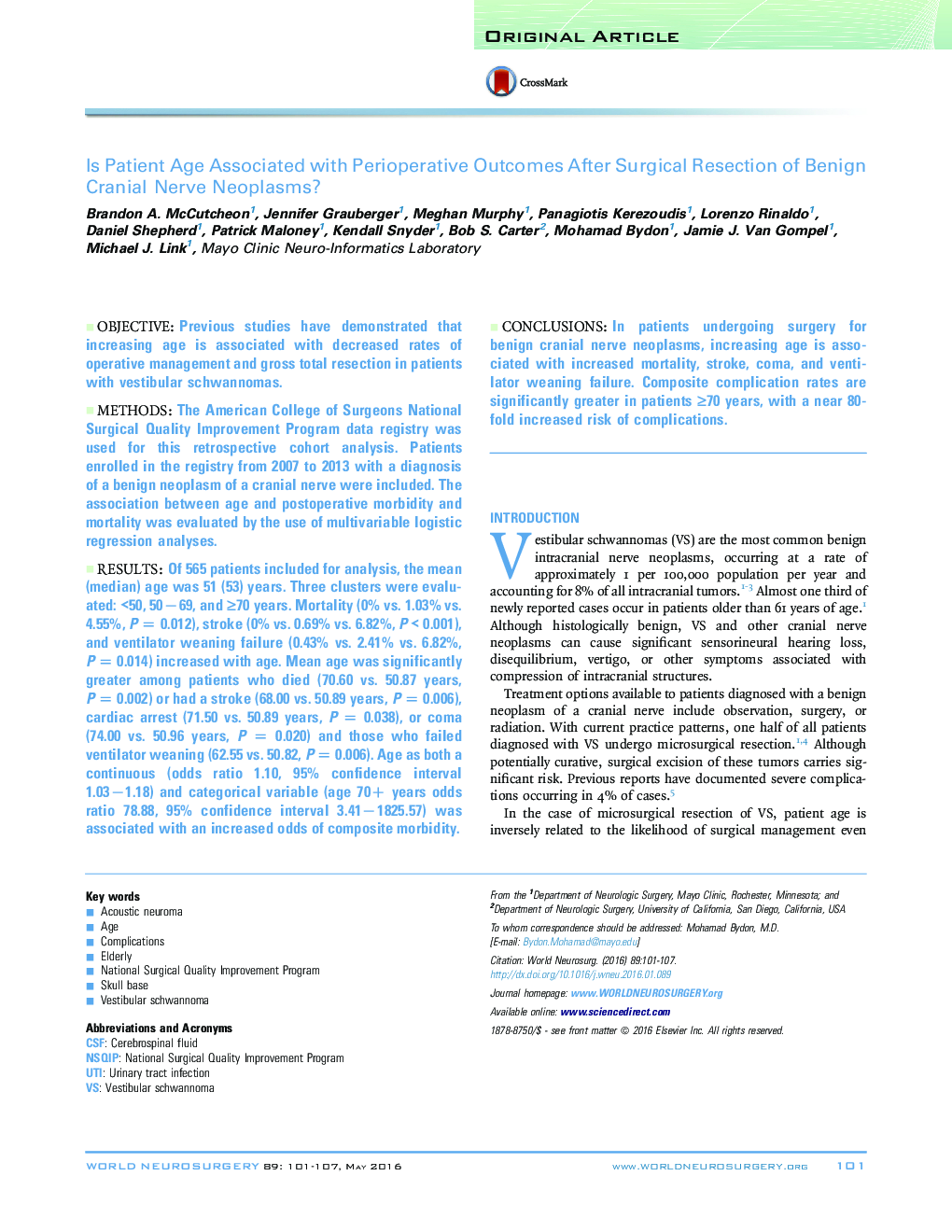| Article ID | Journal | Published Year | Pages | File Type |
|---|---|---|---|---|
| 6043678 | World Neurosurgery | 2016 | 7 Pages |
ObjectivePrevious studies have demonstrated that increasing age is associated with decreased rates of operative management and gross total resection in patients with vestibular schwannomas.MethodsThe American College of Surgeons National Surgical Quality Improvement Program data registry was used for this retrospective cohort analysis. Patients enrolled in the registry from 2007 to 2013 with a diagnosis of a benign neoplasm of a cranial nerve were included. The association between age and postoperative morbidity and mortality was evaluated by the use of multivariable logistic regression analyses.ResultsOf 565 patients included for analysis, the mean (median) age was 51 (53) years. Three clusters were evaluated: <50, 50â69, and â¥70 years. Mortality (0% vs. 1.03% vs. 4.55%, P = 0.012), stroke (0% vs. 0.69% vs. 6.82%, P < 0.001), and ventilator weaning failure (0.43% vs. 2.41% vs. 6.82%, P = 0.014) increased with age. Mean age was significantly greater among patients who died (70.60 vs. 50.87 years, P = 0.002) or had a stroke (68.00 vs. 50.89 years, P = 0.006), cardiac arrest (71.50 vs. 50.89 years, P = 0.038), or coma (74.00 vs. 50.96 years, P = 0.020) and those who failed ventilator weaning (62.55 vs. 50.82, P = 0.006). Age as both a continuous (odds ratio 1.10, 95% confidence interval 1.03â1.18) and categorical variable (age 70+ years odds ratio 78.88, 95% confidence interval 3.41â1825.57) was associated with an increased odds of composite morbidity.ConclusionsIn patients undergoing surgery for benign cranial nerve neoplasms, increasing age is associated with increased mortality, stroke, coma, and ventilator weaning failure. Composite complication rates are significantly greater in patients â¥70 years, with a near 80-fold increased risk of complications.
